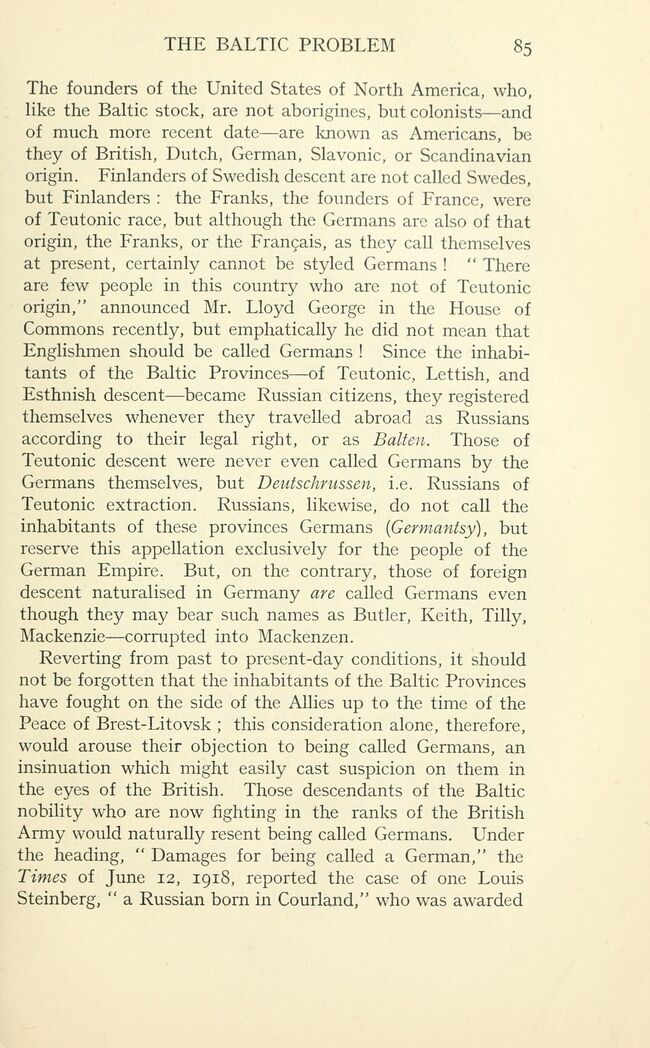
Full resolution (JPEG) - On this page / på denna sida - VIII. The Baltic problem

<< prev. page << föreg. sida << >> nästa sida >> next page >>
Below is the raw OCR text
from the above scanned image.
Do you see an error? Proofread the page now!
Här nedan syns maskintolkade texten från faksimilbilden ovan.
Ser du något fel? Korrekturläs sidan nu!
This page has never been proofread. / Denna sida har aldrig korrekturlästs.
THE BALTIC PROBLEM
85
The founders of the United States of North America, who,
like the Baltic stock, are not aborigines, but colonists—and
of much more recent date—are known as Americans, be
they of British, Dutch, German, Slavonic, or Scandinavian
origin. Finlanders of Swedish descent are not called Swedes,
but Finlanders : the Franks, the founders of France, were
of Teutonic race, but although the Germans are also of that
origin, the Franks, or the Francais, as they call themselves
at present, certainly cannot be styled Germans ! " There
are few people in this county who are not of Teutonic
origin," announced Mr. Lloyd George in the House of
Commons recently, but emphatically he did not mean that
Englishmen should be called Germans ! Since the
inhabitants of the Baltic Provinces—of Teutonic, Lettish, and
Esthnish descent—became Russian citizens, they registered
themselves whenever they travelled abroad as Russians
according to their legal right, or as Balien. Those of
Teutonic descent were never even called Germans by the
Germans themselves, but Deutschmssen, i.e. Russians of
Teutonic extraction. Russians, likewise, do not call the
inhabitants of these provinces Germans (Germantsy), but
reserve this appellation exclusively for the people of the
German Empire. But, on the contrary, those of foreign
descent naturalised in Germany are called Germans even
though they may bear such names as Butler, Keith, Tilly,
Mackenzie—corrupted into Mackenzen.
Reverting from past to present-day conditions, it should
not be forgotten that the inhabitants of the Baltic Provinces
have fought on the side of the Allies up to the time of the
Peace of Brest-Litovsk ; this consideration alone, therefore,
would arouse their objection to being called Germans, an
insinuation which might easily cast suspicion on them in
the eyes of the British. Those descendants of the Baltic
nobility who are now fighting in the ranks of the British
Army would naturally resent being called Germans. Under
the heading, " Damages for being called a German," the
Times of June 12, 1918, reported the case of one Louis
Steinberg, " a Russian born in Courland," who was awarded
<< prev. page << föreg. sida << >> nästa sida >> next page >>